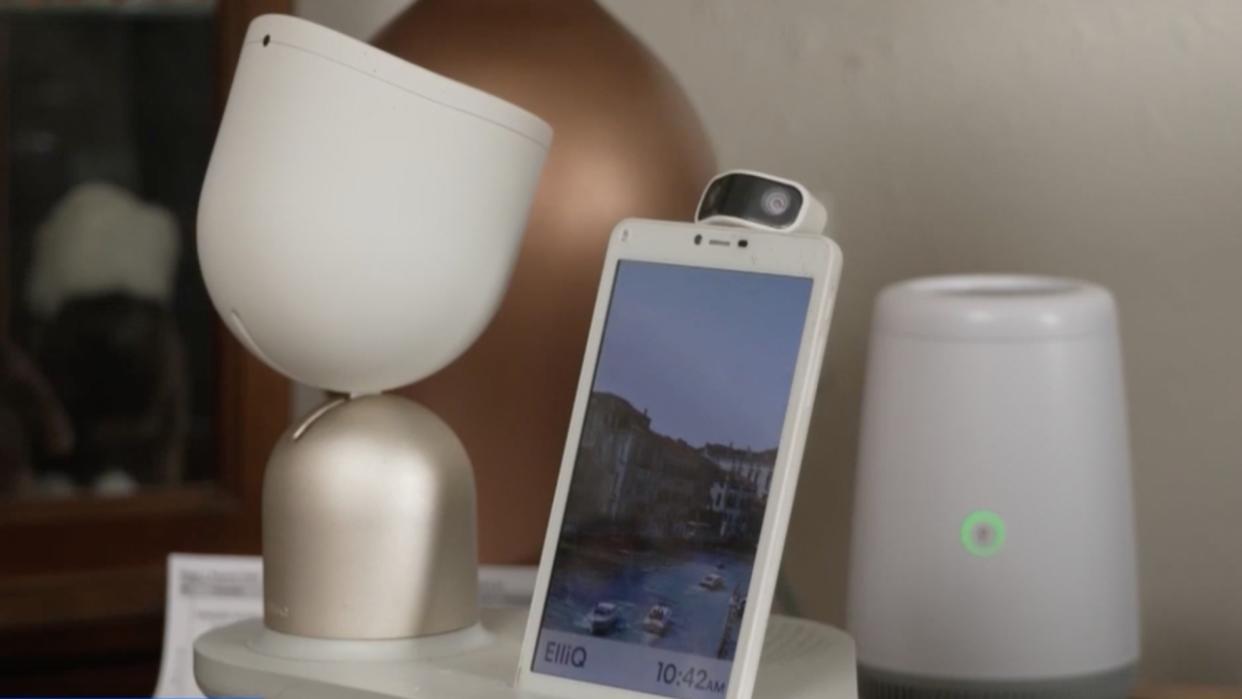Students invent 3D-printed prosthetic arms and explore bee pollination at national STEM competition
It's not your average high school science fair.
The students at the Regeneron Science Talent Search are tackling some of the biggest challenges facing modern science and engineering — like the promotion of bee pollination.
"Basically I had to collect them from the hive at like anywhere from 1:00 to 3:00 a.m., put them in my freezer for a period of time to slow down their metabolism enough that I can handle them. And then I put them in basically what amounts to straws, you can see that some here," explained Ella Pilacek, a 17-year-old student from Florida.
There's research on everything from overcoming bias in artificial intelligence to the creation of a $40 3D-printed prosthetic arm.
"You can push in a button, lengthen it and it locks back in place," 18-year-old Arav Bhargava told Scripps News.
He created the device after working with disabled children.
"This is for the millions of people in developing countries who need prosthetics but don't have access to it because of its high cost, and they don't have access to professionals who can fit them to the necessary custom-fitted prosthetics. Mine is universal so it can fit no matter the size," he explained.
For Sarang Goel, the project is also personal.
"I have an elderly family friend. She's been visually impaired for the last five years due to her diabetes," said Goel.
So he invented a pair of glasses to enhance mobility and navigation for the visually impaired.
"There's a sensor on the front for object-collision-avoidance in emergency situations. There's a microphone and a speaker on the back for the audio communication for the user and the robot device. There's the LED flashlights to eliminate dark environments, a wireless charging receiver to receive power, and then a portable battery to power the entire device," Goel explained.

Artificial Intelligence
New AI improves companion robots with conversation, personalization
The event is hosted by the Society for Science in Washington, D.C., which got its start in 1921.
"We were founded by EW Scripps, the publishing magnet, and W.E. Ritter, a zoologist, and they were very worried about the misinformation and disinformation in newspapers about science. Go figure," said CEO and President Maya Ajmera.
The same E.W. Scripps who founded what would someday become Scripps News by launching a series of newspapers, believed science could promote human welfare.
"They decided to create the first cadre of science journalists in the country, and that was in 1921, and we founded Science News through the Society for Science, and that started our path to our other programs," Ajmera explained.
The science competition has been around for more than 80 years. Past participants include leaders like Sen. Chuck Schumer and OpenAI co-founder Greg Brockman.
Ajmera says the society figured out in 1942 that the U.S. would need young people to compete with the rest of the world.
"What was happening in 1942? It was World War II and they were very worried about the next generation of talent in this country and who was going to protect our country, who are going to be the next engineers and scientists," she stated.
Today, the U.S. falls behind several countries when it comes to the percentage of total graduates picking a career in science, technology, engineering and math. It's lagging behind countries like China, Russia, Germany and Mexico, according to analysis from Georgetown's Center for Security and Emerging Technology.
In late 2022, The Department of Education announced a partnership with 90 public and private organizations to make STEM more accessible to students nationwide, hosting events, including a national STEM festival in April with students from across the country.
The Society for Science is working to bring equity, through classroom partnerships and mentor programs for low-income and underrepresented students.
"We have so many enormous challenges facing us, from climate change to pandemic to cancer. These young people are at the forefront of solving the world's most intractable problems," said Ajmera.
